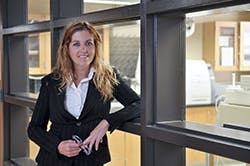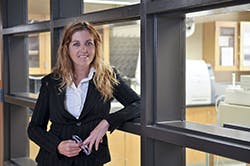Texas A&M Chemist Karen Wooley Is Elected To National Academy Of Sciences
Karen Wooley
Texas A&M University Distinguished Professor of Chemistry Karen L. Wooley is elected to the National Academy of Sciences. Wooley, holder of the W.T. Doherty-Welch Chair in Chemistry and reportedly one of the world’s top chemists in the burgeoning field of materials and polymer chemistry and in creating new materials at the nanoscale level, is among the 120 new members and 26 foreign associates announced by the Academy in recognition of their distinguished and continuing achievements in original research. Election to Academy membership is a widely accepted mark of excellence in science and is considered one of the highest honors that a scientist can receive, according to Texas A&M.
The 2020 election brings the total number of active members to 2,403 and the total number of international members to 501. International members are nonvoting members of the Academy, with citizenship outside the United States.
“All of us at Texas A&M are delighted that Dr. Wooley has received this prestigious recognition,” says Texas A&M President Michael K. Young. “National Academy memberships not only attest to the impressive achievements of an individual researcher, they also elevate academic excellence across the institution. Her election to the Academy is a well-deserved credit to her groundbreaking work in the field of chemistry, as well as an honor to our entire university community.”
A member of the Texas A&M Department of Chemistry faculty since 2009, Wooley also holds joint appointments in the Department of Chemical Engineering and Department of Materials Science and Engineering. In addition, she serves as director of the Laboratory for Synthetic-Biologic Interactions. She was appointed as a distinguished professor in 2011 and was named one of Texas A&M’s 24 inaugural Presidential Impact Fellows in 2017. She also serves as chief technology officer for United Kingdom-based Teysha Technologies, which signed a sponsored research agreement last year with Texas A&M to streamline degradable polymers development and expand the scope of bioplastics technology developed within the Wooley Laboratory.
For more information, visit: www.tamu.edu

